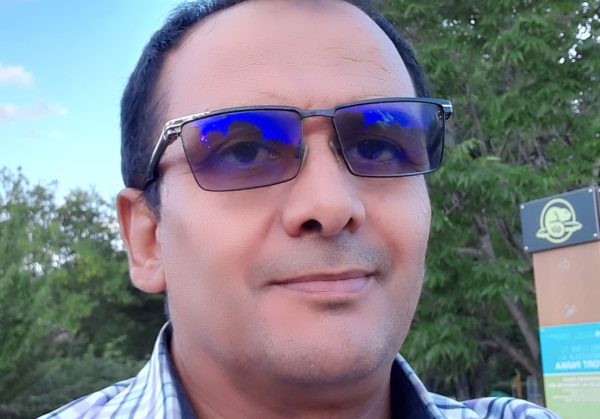
Dzung Nguyen was among the first to answer my request for interviewees. I had posted an ad asking for “stories that would inspire and help other newcomers,” and for Dzung, whose life has been all about helping others, it was a call she could not resist.
A drastic shift
Dzung’s daughter had always wanted to study abroad. They were looking at schools in the US and UK, but they eventually set their sights on Canada. “We chose Canada because of the quality of education. Also, it did not cost as much compared to the other countries we were considering. Another reason is that educational credentials are recognized nationwide here,” she said. With many of their friends advising them not to let their daughter go on her own, they decided to move as a family. This was a decision they thought that would be best not only for their daughter but also for their young son. The Nguyen family arrived in Manitoba in March 2019.
Finding herself at home and taking care of everything for her family was the first challenge. At the time they left Vietnam, Dzung and her husband were successful professionals. She was working in the engineering, auditing and sustainability industries for major companies like P&G (Procter and Gamble), CSCC (Cal Safety Compliance Corporation), STR (Specialized Technology Resources), UL (Underwriters Laboratories), BV (Bureau Veritas), CCRCSR (The Center of Child Rights and Corporate Social Responsibility), while her husband was also in auditing and consultation. “I have 27 years of working experience. I was used to travelling for work and helping people and organizations in various capacities. Back home, we had helpers who would do household chores for us. My mom and sister would also help take care of the kids while I was at work. That’s why it’s a big adjustment for me to be doing everything around the house,” she said. But Dzung also saw their move as a chance to help her family and be close to them. “When I was working and travelling, sometimes I didn’t even have time to talk to them,” she said.
To ease her adjustment, she set out to learn more about her new environment by availing of settlement services. She registered with Manitoba Start, Immigrant Centre and OFE where she attended orientations and trainings in her spare time. It was also at MB Start where she was referred to WELARC for language testing. From there, she availed of language courses with EESE, Red River College and English Online.
“In your home country, you have the support of your family and friends. They come to you even if you don’t say anything. In Canada, nobody will come to you if you don’t open your mouth, meaning, if you don’t speak and ask for help. This is why it is important to learn how to communicate and be open”
“I didn’t know that I had an accent”
I noticed that Dzung already spoke English quite well so I asked her why she needed language training. She said that accent was her problem.
“I actually didn’t know that I had an accent although I have communicated with many native English speakers before coming to Canada. I also learned English with Vietnamese teachers and no one told me about my weird accent when I was in Vietnam. In Canada, I don’t think people have a problem with my vocabulary and grammar but they don’t understand me because of my accent,” she said.
So aside from attending Nastashya and Blaine’s drop-in classes, she also has one-on-one training with EO. “You probably understand me very well now because I have been working with Nastashya. I love that she meets with me every week and for 20 minutes we work on my pronunciation,” she said.
A very dedicated student, Dzung knows that communication is essential to successful settlement. “In your home country, you have the support of your family and friends. They come to you even if you don’t say anything. In Canada, nobody will come to you if you don’t open your mouth, meaning, if you don’t speak and ask for help. This is why it is important to learn how to communicate and be open,” she said.
“Be mentally and emotionally prepared”
Shortly before moving to Canada, Dzung shared that she had lost family members in immediate succession. Her mother and mother-in-law passed away a few months before they left for Canada then a few months after, her brother-in-law and her cousin died. One month after landing, her father-in-law followed. Then five months after, they received word that her sister was sent to emergency then passed away during the pandemic. She tells it matter-of-factly but you’ll notice that it weighs heavy on her. “I don’t know why that happened. I think about them often and I miss them,” she said. Despite this tragic loss, Dzung was able to remain strong. She says that this experience outlines the importance of mental preparation before moving to a new country. Newcomers should be ready to handle challenges without the usual support of family members nearby.
Aside from this, she advices newcomers to:
- Be financially well-prepared. Expect that you won’t have a job for the first three to six months. She says that newcomers should have enough resources to take care of themselves and their family so that they won’t have to worry during this period.
- Learn everything. Dzung has an analytical approach to settlement. She observes, gathers information/trains, then strategizes. For example, she first explored online option/stock trading which is in line with her business acumen. She took trainings and learned more about it. However, when she realized that advanced training would require a significant investment in time and money, she shifted to owning a digital marketing business. She said that the venture allows more flexibility considering that she prioritizes time spent with her family. She also sees it as a chance to help more people succeed in digital business.
- Help others. She assists family and friends back home who are interested in immigrating by giving advice. She tells them to consider the International Student path because it will allow them to earn Canadian credentials which will make it easier for them to get a good job later on.
- Be open. Dzung is used to dealing with various climates and cultures because of her extensive travels. She says that being open to new experiences will make it easier for newcomers to adjust and have a smoother transition in Canada.




 It was a good day to talk to Chokri. He had just received the results of his language test which showed that his skill level has moved up to intermediate in speaking. To think he had just started learning English a few months ago, it is indeed an achievement worth celebrating.
It was a good day to talk to Chokri. He had just received the results of his language test which showed that his skill level has moved up to intermediate in speaking. To think he had just started learning English a few months ago, it is indeed an achievement worth celebrating. “I think that the best thing about Canada is that you can start over and over again. You have a wide panorama here and the view is wide open. Don’t be discouraged if you are not in your field of expertise because maybe you can be valuable in another field and you don’t know that. Write your history in Canada again!”
“I think that the best thing about Canada is that you can start over and over again. You have a wide panorama here and the view is wide open. Don’t be discouraged if you are not in your field of expertise because maybe you can be valuable in another field and you don’t know that. Write your history in Canada again!” Raimner was on a short break when he spoke to me on Skype. He was on a tight schedule – studying in the morning at Robertson College and then going to work in the afternoon, with most of his free time spent on classes with English Online. I had 30 minutes to speak to him before he leaves for work.
Raimner was on a short break when he spoke to me on Skype. He was on a tight schedule – studying in the morning at Robertson College and then going to work in the afternoon, with most of his free time spent on classes with English Online. I had 30 minutes to speak to him before he leaves for work.